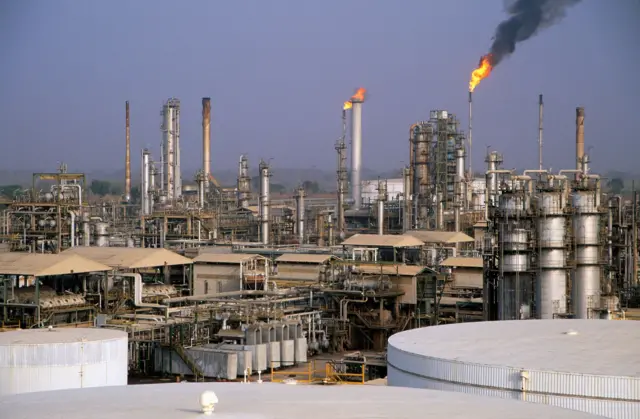Maureen Aguta
The Nigerian downstream oil sector is set for a transformation with the operationalization of the Port Harcourt, Warri, and Dangote Petroleum Refineries. Industry experts and stakeholders assert that these developments will introduce competitive pricing, diversify supply sources, and ultimately lower fuel costs for consumers.
This came as energy stakeholders project that the price of Premium Motor Spirit (PMS), or petrol, currently priced between N900 and N950 per litre, could drop to as low as N500 per litre in 2025. Key factors driving this potential price reduction include: Increased Local Refining Capacity: The Warri, Port Harcourt, and Dangote refineries are ramping up operations, reducing Nigeria’s reliance on imports.
Also, stable forex policy is expected to bring about a more predictable exchange rate policy which will reduces the cost of importing petroleum products.
Similarly, the Naira-for-Crude policy for local refineries will reduce their exposure to volatile foreign exchange rates.; while a healthy competition among players is expected to encourage fresh players to enter into the sector, a development that is expected to drive down prices through competitive practices.
Stakeholders’ Perspectives
Speaking, the National Publicity Secretary of the Independent Petroleum Marketers Association of Nigeria (IPMAN), Ukadike Chinedu, described the coming upstream of local refineries as a “game changer” for the downstream sector. He noted the benefits of competition in reducing prices and enhancing supply reliability.
President of the Petroleum Products Retail Outlet Owners Association of Nigeria (PETROAN), Billy Harry, commended the significant price reductions by NNPC and Dangote Refinery, saying there would be further price drops due to increased competition and consistent product availability.
Also speaking, the Publicity Secretary of Crude Oil Refinery-owners Association of Nigeria (CORAN), Iche Idoko, affirmed that price reductions are a hallmark of a deregulated market. He emphasized that local refining will foster competition around pricing, product quality, and credit availability.
Challenges and Future Outlook
Despite the progress, challenges remain: Supply Shortfall: Only five out of 25 licensed modular refineries are operational.
Rehabilitation Delays: The Kaduna Refinery’s rehabilitation is progressing slowly due to high costs and technical issues.
Import Dependence: Major marketers still import about 30 million litres daily to bridge supply gaps.
However, as more refineries become operational and the government sustains favorable policies, the downstream sector is expected to stabilize, even as the ongoing competition among local refiners will likely result in affordable, high-quality petroleum products for Nigerian consumers.
The operationalization of the Port Harcourt, Warri, and Dangote refineries signals a new era for Nigeria’s downstream oil sector. With increased local production, stable forex policies, and healthy competition, fuel prices are projected to drop significantly, offering relief to consumers and boosting the economy.
Current Refining and Consumption Statistics
Daily Petrol Consumption: Nigeria consumes approximately 40 million litres of petrol daily.
Local Production: Current local production meets only 20.5 per cent of demand, supplying about 8.2 million litres daily.
Importation: Around 31.8 million litres (79.5 per cent of daily consumption) are still imported.
The Dangote Refinery, which has a capacity of 30 million litres daily, currently injects about 7 million litres into the domestic market. The Warri Refinery, operating at 60 per cent capacity and the Port Harcourt Refinery are gradually increasing production, focusing on petrol, kerosene, and diesel.
Impact of Local Refining on Prices
The reactivation of state-owned refineries and the Dangote Refinery’s contribution are expected to create multiple sources for petroleum products, reducing the monopoly previously held by importers. This diversification has already led to price reductions:
NNPC: Reduced its ex-depot price from N1, 045 to N899 per litre, resulting in pump prices of N925 per litre.
Dangote Refinery: Cut its ex-depot price from N970 to N899.50 per litre.


